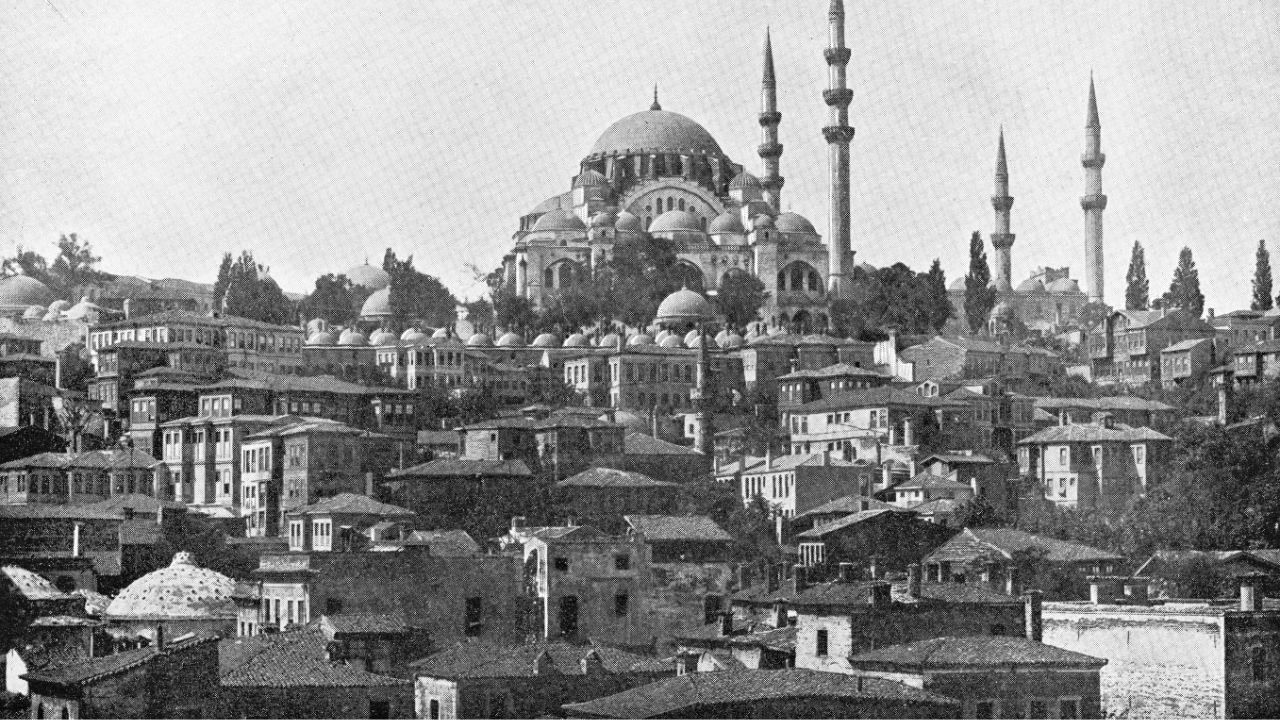
Post by: Vansh Kumar
The Ottoman Empire, one of the most influential empires in world history, spanned over 600 years, profoundly shaping Europe, the Middle East, and North Africa. Discover the Rise and Decline of the Ottoman Empire and understand how this empire went from a small state in Anatolia to a mighty global power before ultimately fading into history. This exploration offers insights into the empire’s complex political, military, and cultural journey, filled with both remarkable achievements and unfortunate downfalls.
The story begins in the late 13th century with Osman I, the founder of the Ottoman dynasty. Born in 1258, Osman established a small principality in Anatolia, in what is now modern-day Turkey. Discover the Rise and Decline of the Ottoman Empire by understanding how Osman’s leadership, military prowess, and strategic alliances enabled his small state to rapidly expand its territory.
Under Osman’s successors, such as Orhan and Murad I, the state expanded beyond Anatolia into the Balkans and Eastern Mediterranean. This growth was largely driven by a powerful military force, particularly the Janissaries—an elite infantry that became the backbone of the military. Using both diplomacy and military might, the Ottomans secured control over crucial trade routes, further strengthening their domain.
The peak of expansion occurred under Sultan Mehmed II in the mid-15th century. Mehmed's conquest of Constantinople in 1453, which led to the fall of the Byzantine Empire, was a defining moment in world history. By transforming Constantinople into Istanbul, he not only made it the new capital but also a cultural, economic, and political hub. Discover the Rise and Decline of the Ottoman Empire through this period of incredible achievement and transformation.
The period from the 16th to early 17th centuries is often called the "Golden Age" of the empire. Under Suleiman the Magnificent, the empire reached its height, both territorially and culturally. His reign, from 1520 to 1566, marked a time of significant military campaigns, expanding the empire into Europe, North Africa, and the Middle East.
Suleiman's reign was also marked by reforms in law and governance. He promoted arts, architecture, and education, leading to the construction of iconic buildings such as the Suleymaniye Mosque in Istanbul. This period saw great advancements in literature, science, and philosophy, leaving a lasting cultural legacy. The Ottomans also excelled in diplomacy, forging alliances with European powers like France to counterbalance the rising influence of the Habsburgs. This combination of military strength and diplomatic acumen allowed the Ottomans to maintain their global influence for centuries.
Despite its impressive expansion and achievements, challenges began to surface in the 17th century. Discover the Rise and Decline of the Ottoman Empire as it entered a period of stagnation marked by internal turmoil, military overreach, and external pressures.
One significant factor in the decline was the empire's overextension. As it expanded, maintaining control over vast territories became increasingly difficult. The Ottomans faced growing competition from European powers such as Russia, Austria, and later Britain and France. Their failure to modernize their military and adopt the technological advancements of their rivals put them at a disadvantage.
Internally, the empire was beset by political instability. Sultans began relying on corrupt officials, and the central government became less effective in managing the provinces. The Janissaries, originally an elite military force, became politically influential and often interfered in governance, weakening the empire further.
By the 18th and 19th centuries, territories were lost to European powers, and nationalist movements within the empire's borders began to rise. Once-thriving trade routes became less profitable, and the economy began to deteriorate. The rise of European colonialism and the empire’s inability to keep up with technological advancements created an economic and military imbalance.

By the early 20th century, the empire had been dubbed the "Sick Man of Europe." Discover the Rise and Decline of the Ottoman Empire during its final years, as it struggled to hold onto its territories. In World War I, the Ottomans sided with the Central Powers, but their defeat led to the partitioning of their lands by the victorious Allies.
The end came in 1922, when the Republic of Turkey was established under Mustafa Kemal Atatürk, who abolished the Ottoman monarchy and modernized the country. The legacy of the empire, however, remains significant, as many modern countries in the Middle East, North Africa, and Southeast Europe can trace their roots back to this period.
Though the Ottoman Empire is no longer a political entity, its cultural and historical influence continues to shape the modern world. From architectural marvels like the Blue Mosque in Istanbul to the culinary traditions that still thrive across the Balkans and Middle East, the Ottomans left a lasting mark on the regions they once controlled.
Additionally, the borders drawn during the collapse of the empire continue to affect global diplomacy and conflict. Many modern-day issues in the Middle East and surrounding regions can be traced back to the divisions and legacies left by the Ottoman rulers.
The Ottoman Empire, spanning over 600 years, rose from a small principality in Anatolia to become one of the most influential powers in world history. Its rise began with Osman I in the 13th century, expanding under his successors and reaching its peak under Sultan Mehmed II, who conquered Constantinople in 1453. The Golden Age, marked by the reign of Suleiman the Magnificent in the 16th century, saw territorial expansion, cultural achievements, and military success. However, by the 17th century, internal and external challenges led to a slow decline, including military overreach, political instability, and economic difficulties. The final years saw its defeat in World War I and eventual dissolution in 1922, leading to the establishment of the Republic of Turkey. Despite its collapse, the legacy continues to influence art, architecture, cuisine, and modern-day geopolitics.
Disclaimer: This article is provided by dxb news network. The views and opinions expressed are for informational purposes only and do not necessarily reflect the official stance of dxb news network.
#trending #latest #OttomanHistory #RiseAndFall #HistoricalEmpires #CulturalLegacy #WorldHistory #SuleimanTheMagnificent #MehmedII #EmpireExpansion #MiddleEastHistory #GlobalInfluence #LegacyOfEmpires #ByzantineFall #RepublicOfTurkey #OttomanLegacy #breakingnews #worldnews #headlines #topstories #globalUpdate #dxbnewsnetwork #dxbnews #dxbdnn #dxbnewsnetworkdnn #bestnewschanneldubai #bestnewschannelUAE #bestnewschannelabudhabi #bestnewschannelajman #bestnewschannelofdubai #popularnewschanneldubai

Anthony Elanga’s stunning solo goal secured Nottingham Forest’s 1-0 win over Man United, pushing them closer to Champions League qualification...Read More.

Val Kilmer, famed for Top Gun & Batman Forever, has died at 65. The Hollywood icon battled throat cancer & left behind a lasting cinematic legacy...Read More.














Nottingham Forest Near Champions League After Elanga’s Goal
Anthony Elanga’s stunning solo goal secured Nottingham Forest’s 1-0 win over Man United, pushing the

Ananya Panday Shines at IPL 2025 with Stunning Dance Performance
Bollywood star Ananya Panday dazzled the crowd at Wankhede Stadium with her energetic dance before M

Foreign Minister Joins Heritage Foundation Discussion in Washington
Dr. Abdullatif Al Zayani attended a session at the Heritage Foundation in Washington, discussing Bah

ChatGPT Hits 1 Million Users in an Hour with Ghibli AI Art
OpenAI's new image feature, creating Ghibli-style AI art, goes viral. ChatGPT added 1 million users

UConn Joins Top Seeds in Women’s Final Four
UConn, South Carolina, UCLA, and Texas are in the Women’s Final Four. It’s set to be an exciting sho